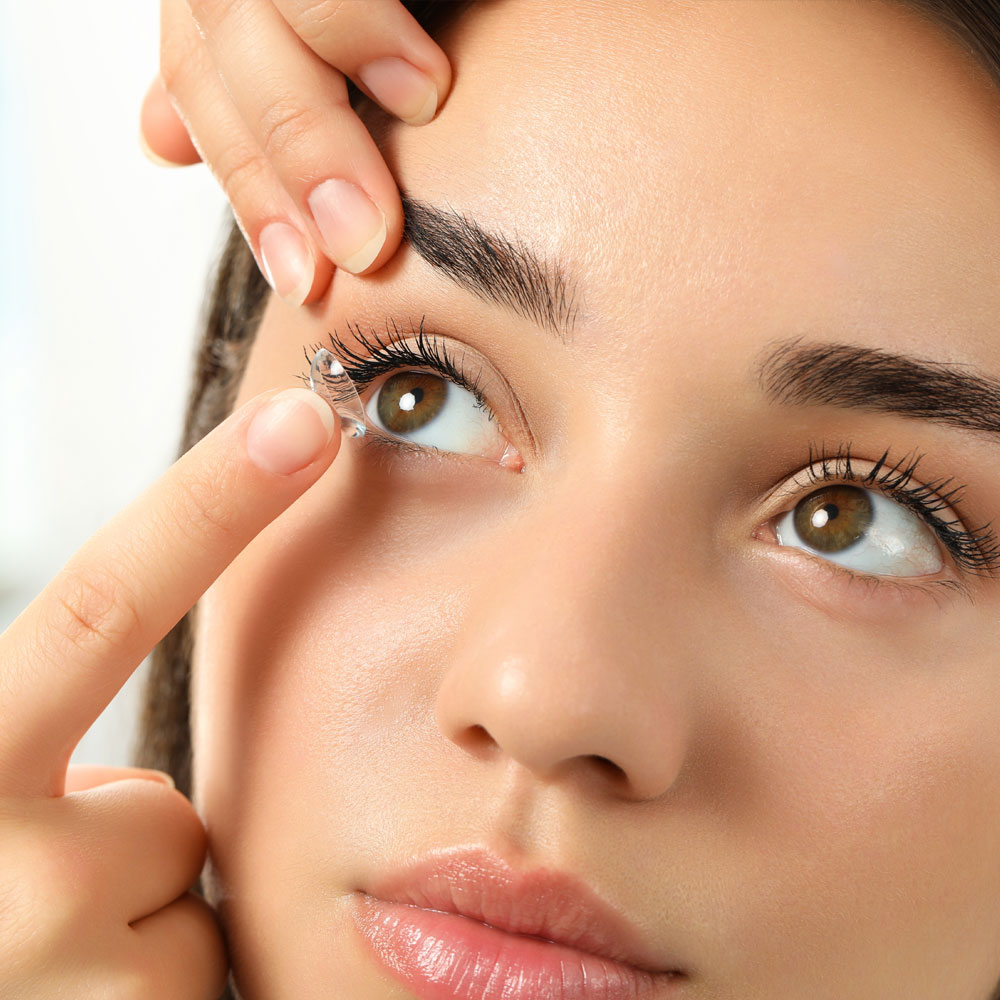
Your Spring Eye Doctor
On the corner of Rayford road and Grand Parkway/Riley Fuzzel
About Memorial Eye Center - Riley Fuzzel
We proudly serve the Spring, The Woodlands, Tomball, and Humble areas of north Houston.
Memorial Eye Center is equipped with state-of-the-art diagnostic technology and unique, personalized lens options for your eyewear needs. Our doctors specialize in a range of services including prescribing contacts, eyeglasses, treating various diseases of the eyes such as cataracts and glaucoma, as well as discussing and recommending refractive surgery options.

Our Eye Care Services

Comprehensive Eye Exams
From updating your eyeglasses prescription to detection and treatment of eye diseases, comprehensive eye exams are important for continued visual health.

Contact Lens Exams
During a contact lens exam, your eye doctor will check if you are a good candidate for contacts and find the best type of contacts for your needs..

Dry Eyes
Do you have dry, itchy, gritty-feeling eyes? Dry eye syndrome is a very common condition. We offer dry eye treatments at our eye care clinic.
Eye diseases such as glaucoma and macular degeneration can cause severe loss of vision if not diagnosed and treated early. Our eye care team can help.
If cataracts go untreated, they can cause total blindness in the affected eye. We can help with co-management of your cataract removal surgery.
Eye emergencies such as severe pain in the eye, or foreign objects puncturing the eye require immediate attention. Contact us immediately.
LASIK and refractive surgery are great ways to say goodbye to contacts and glasses for good. Find out if you’re a good candidate.
Macular degeneration can cause severe central vision loss if not detected and treated early on. We can help preserve your vision.
Vision therapy is a scientifically-proven regimen of in-office and at-home exercises to train the brain and eyes to work together better. Find out how we can help.
Astigmatism can cause vision problems such as blurred or double vision at all distances. Find out what you can do to correct astigmatism and see your best.
Children with myopia are at higher risk for potentially sight-threatening vision problems. Save your child’s vision with myopia management.
Presbyopia is a normal part of aging. If you’re past 40 and notice you can’t read up close, our eye doctors may be able to help.
Sports vision therapy can train the brain and eyes to work together for better coordination and faster reactions. We can help you play your best.
Eyeglasses & Frames
Designer Frames
Our extensive optical section offers a wide variety of eyeglass frames in every style, material & design. Come visit us today to see for yourself!
Our expert optical team can find just the right pair of glasses for you to be confident and look your best.
Lens coatings improve visual comfort, make it easier to clean your glasses and ensure your lenses last longer. Coatings include anti-scratch, anti-reflective, photochromatic and UV / blue light filters.
Contact Lenses
Contact Lens Fitting
We offer a wide range of contact lens options from dailies, monthly to multifocal contact lenses for crystal clear vision and superior comfort.
During a contact lens exam, your eye doctor will check if you are a good candidate for contacts and find the best type of contacts for your needs.

40% Off Frames
*Requires purchase of a complete prescription pair, including frame and lenses. Does not include Barton Perreira, Cartier, Cazal, Chanel, Cutler and Gross, Dior, Dita Lancier, Fendi, Gucci, ic!Berlin, l.a. Eyeworks, Maui Jim, Michael Kors, Nifties, Oakley, Oliver Peoples, Persol, Ray-Ban, Robert Marc, Silhouette, Tiffany & Co., Tom Ford, WOOW, accessories, contact lenses, or medical procedures. Cannot be combined with any other discounts, promotions, or insurance plans. Not valid on previous orders. Other restrictions may apply. See practice for full details. Offer valid 04/08/2024-06/16/2024. 24AEG-729313














